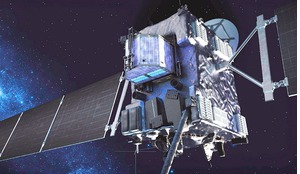This spring US President Donald Trump delivered a speech whilst congratulating the US Army’s West Point football team and once again called for the creation of a US Space Corps, or Space Force, to advance the country’s military space interests. Congress has also pursued similar ideas but does the United States need what would very likely be a heavily defence-centric, single-mission new space service? Instead, America might be better suited fielding a multi-mission, space governance agency modelled after the existing US Coast Guard. Michael Sinclair suggests that a Space Corps or Force is not the same as a Space Guard and is the wrong model.
The US Coast Guard’s permanent, full-time and concurrent status as an armed force, search and rescue service, regulatory agency and law enforcement entity make it the optimal model for a space agency, in that what the service lacks in comparable brute-force military capability it more than makes up for in mission flexibility. And effective 21st century space governance will no doubt require great mission flexibility to deal with the challenges and opportunities posed by the coming American commercial space boom.
The idea of establishing an organisation’s infrastructure based on total domain management, as opposed to one grounded within a singular mission set is a key theme in discussion of why a ‘Space Guard’ would almost certainly be superior to a ‘Space Corps’ or ‘Force’.














